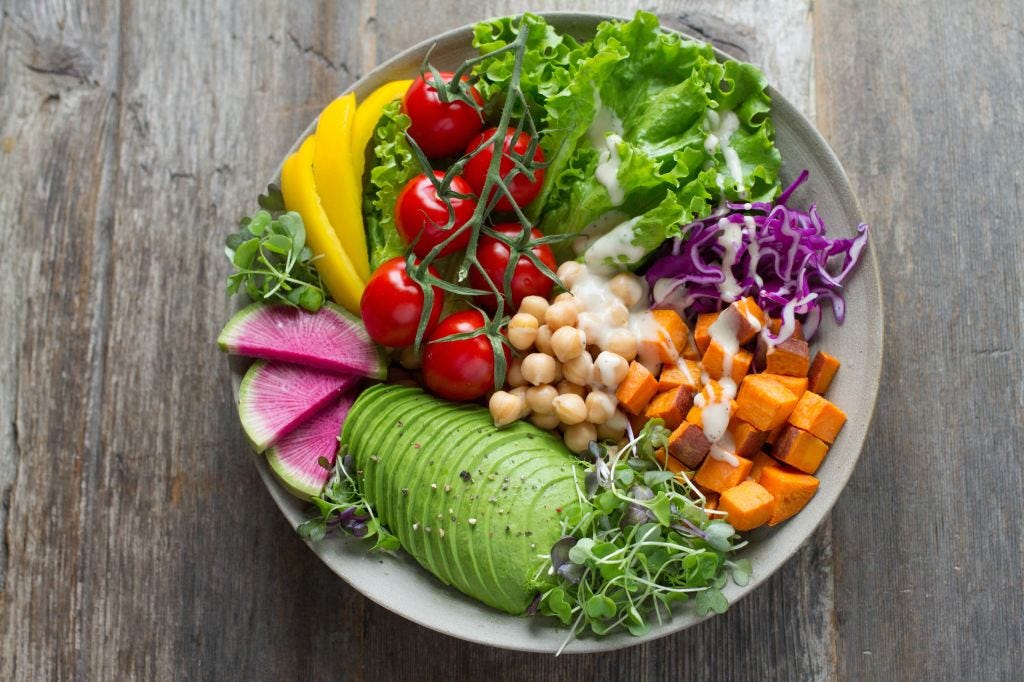The Myth of Neutral, The Greatest Competitive Advantage, and Mental Diets
DISCIPLESHIP
“Treat practice like a game. I'm a big believer in that. You're (either) getting better or you're getting worse. You don't stay the same."
Peyton Manning
Sports heroes leave a signature mark on the game. All the greats have them. When you think of MJ, you think of the ultimate competitor. When you think of Shaq, you think of physical dominance. When you think of Peyton Manning, you think of preparation.
That was Peyton's MO. He was always the most prepared. The driving belief behind his soaring level of preparation was that he believed if he wasn't preparing, he wasn't just not improving—he was actually getting worse. To Peyton, there was no plateau. Ultimately, the preparation sustained by this belief of his is what propelled him to the Hall of Fame.
This isn't just an effective psychological mechanism Peyton deployed to convince himself to work harder. It's a truth taught by the Savior.
"For whosoever receiveth, to him shall be given, and he shall have more abundance; but whosoever continueth not to receive, from him shall be taken away even that he hath" (Matthew 13:10-11 JST).
This is a universal principle that applies to everything in life. It has particular application to our faith in Jesus Christ. As Peyton Manning said, you're either getting better or worse. You don't stay the same.
Dale G. Renlund has likened our faith to a car driving on a long road ascending a mountain peak. With that visual in mind, he taught: "Note that nowhere on the upwardly spiraling road is it perfectly horizontal; nowhere is the slope zero; there is no plateau; there is no place to pause and rest; and the course either goes up or down. Similarly, faith is either becoming stronger or weaker."
Faith is a muscle. You choose whether or not you exercise it. You can strengthen the muscle or allow it to weaken, but there is no neutral.
It is a mistake to believe your inaction today won't lead to a weakened faith tomorrow. You are not the exception to the rule.
Find intentional ways to exercise your faith this week.
LEADERSHIP
“The rarest of human qualities is consistency."
Jeremy Bentham
You've heard Ed Sheeran's songs. Everyone has. He is the 2nd most streamed artist in Spotify history and has the 2nd highest-grossing tour of all time. He's a global superstar.
But have you heard him as a 14-year-old?
Today we have viral sensations at 14. Justin Bieber went viral and was signed to a major deal at the age of 13. He had serious talent. Ed?
Well, if you clicked on the link and listened to even the first minute of Ed's song, the term "global superstar" wouldn't even cross your mind. He was not good. Commenting on this, Ed said, "Look, this is me at 14. I wrote the A-Team (Ed's first popular single) at 18. 4 years later. In 4 years I learned harmony, I learned how to sing in tune, I learned how to perform. You can do it … but it doesn't just happen overnight. You have to be rubbish. You have to have people laugh at you. You have to have people say, 'Eh, this isn't going to work for you. Get a real job.' And you just have to have belief that eventually, it is going to get better."
Ed Sheeran did not possess the somewhat common trait of musical talent. However, he did possess the rarest of human qualities: consistency.
At 14, he knew he didn't have Bieber-like talent. His competitive advantage was consistency. "(Being a musician) is what I wanted to do. And to do it I have to do all these gigs and write all these songs. I always knew that you just had to work harder than everyone else. I looked at all my peers and was like, well, you're playing 1 show a week. I'm going to do 3 shows a night."
There is no greater competitive advantage than consistency.
Here's just one example of that principle. There are millions of podcasts in the world. It can be such a crowded, hard space to break into. But did you realize if you were to make just 21 podcast episodes, you'd be in the top 1% of podcasts? 25% of podcasts have only 1 episode. They quit after 1.
That percentage is a representation of everyone in every field of life. 25% of people quit after 1 try. The majority sputters off somewhere soon after. Only 1% are willing to give it at least 21 tries.
Consistency is not easy. But it is simple. And it matters a lot more than talent.
MENTAL PERFORMANCE
“Let virtue garnish thy thoughts unceasingly; then shall thy confidence wax strong in the presence of God.”
Doctrine & Covenants 121:45
In one of my favorite definitions of virtue, it is defined as "a particular moral excellence". When I would read this D&C verse as a kid, I thought it was referring exclusively to the avoidance of impure thoughts.
But thinking virtuously is much more than keeping bad things out. It's about putting excellent things in.
The mind, like the body, needs to be nourished. Like we often do with our physical diets, we need to audit our mental diet.
A great physical and mental diet consists of 3 basic components
Some foods/substances that are NEVER allowed.
Some foods/substances that are consumed in moderation.
Some foods/substances that should be consumed daily and often.
Group 1
This group is where the drugs exist. We all know to never even approach drugs. They kill you.
There are certain mental drugs that should also never be approached. Treat them like you'd treat cocaine or meth. Stay far away. For the sake of brevity, I'll just list two: pornography and any negative thought (about yourself or others).
Avoid negativity like the plague. It poisons the mind. If you consume fear, discouragement, comparison, or anything that makes you feel bad about yourself or dislike someone else … you have to root it out of your diet. It's poison.
Group 2
This group is junk food. In moderation, it's really fun to have ice cream, get a donut, eat a box combo from Canes, etc. But the idea is to nourish your body/mind. So you can't have a steady stream of it.
The mental junk food includes mindless, purposeless scrolling on social media. It includes wasting time on your phone. It includes the need for constant entertainment.
Did you know that over 1 billion hours of YouTube videos are watched every day? And that's just one platform. That's not taking into account Twitter, Instagram, or TikTok. What about video games? What about Netflix? What about actual television and movies?
Entertainment and social-media scrolling can be likened to ice cream. It can be fun. It's not bad. However, too much of it can become a problem fast.
Group 3
This group is the fruit and veggies of the diet. It's the water. Those things that you should consume daily and frequently.
The mental veggies include intentionally pondering on a few things each day:
Heavenly Father and Jesus Christ
Your purpose and mission
Your identity (literal offspring of God)
Covenants/Goals/Commitments you've made
There are a host of other practical applications from positive psychology that are proven to nourish your mind. Without listing them, you know what makes you happy. Whatever it is, do that.
And when I say happy, there's a big difference in how you feel when you eat junk food all day vs. when you eat healthy. You might get pleasure from some greasy pizza, but you never feel super happy after eating it. Likewise, there's a big difference in how you feel when you consume mental empty calories (pleasurable distractions) vs. when you consume a healthy mental diet.
Letting virtue (excellence) garnish your thoughts unceasingly isn't just good psychological practice. It's a commandment from the Lord with spiritual and physical blessings connected to it.
3 Questions
What's 1 thing you can do this week to make sure you're discipleship isn't slipping?
How would your life change if you were consistent with something you really cared about?
What should you add/remove from your mental diet?
Disciple-Leadership: Jesus-led. Lead like Jesus.
Aaron @ The Disciple-Leader





